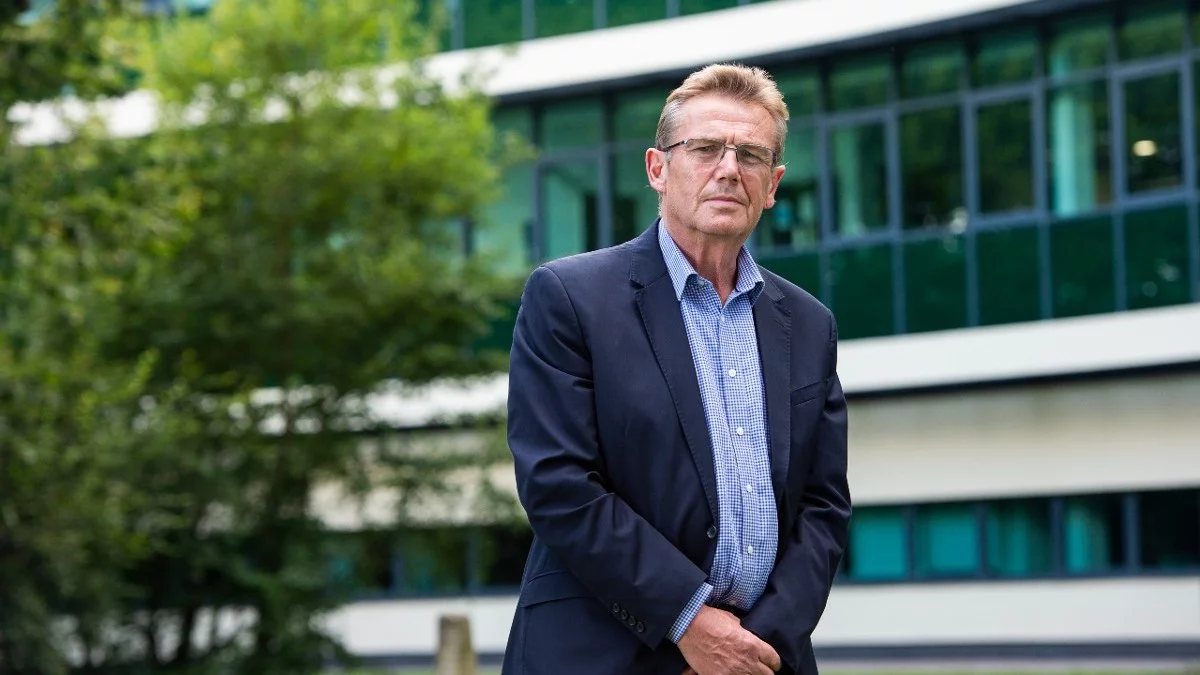Climate change is expected to have an impact on sleep quality, according to leading sleep researcher Professor Derk-Jan Dijk.

Image Credit: University of Surrey.
Rising temperatures make sleeping difficult, preventing people from getting a good night’s sleep as they try to stay cool by opening windows or resting outside. Such measures to stay cool increase the risk that a person's sleep will be disrupted by external factors such as noise.
The past 20 years have left me with no doubt that good quality sleep is the key to a strong, alert body and a healthy mind. And many throughout our society cannot simply get a good night's rest—be it because it is too hot and people cannot get comfortable, or perhaps it is too cold with many not being able to afford to heat their homes during the winter months.
Derk-Jan Dijk, Professor, University of Surrey
“If we are serious about sleep and improving our overall health, we need to look at the bigger picture and address environmental issues such as rising temperature, light pollution, and air quality change which are inadvertently impacting our health including sleep quality,” adds Professor Derk-Jan Dijk.
Sleep is essential for excellent health and well-being because it allows the body to promote optimal brain function and has been shown to lower the risk of diabetes, coronary heart disease, and stroke. However, climate change, long-term temperature shifts, and variations in light-dark cycles continue to be a threat to sleep, with so many reporting disrupted sleep during increasingly prevalent heatwaves.
Professor Dijk’s remarks on climate change and environmental changes in the urbanized and industrialized society, as well as their impact on sleep, come as the Surrey Sleep Centre commemorates 20 years of world-class research.
The Centre, in partnership with Surrey’s chronobiology experts, has released research that sheds light on the importance of circadian rhythms—the bodies’ internal clocks—to sleep, as well as the influence light and temperature play in sleep quality.
Professor Dijk gave a special public lecture on Thursday, May 25th, 2023, to commemorate 20 years of sleep research at the Surrey Sleep Research Centre. Professor Dijk discussed the future of sleep at the free public event, including technological advancements that he believes will help us sleep better, creating “bedrooms for the future”—from camera systems that detect sleeping positions and other contactless technologies that track physiology, to AI that develops a personalized sleep plan to improve sleep quality.
The Surrey Sleep Research Centre was recently awarded £1.7 million as part of the UK Dementia Research Institute to enhance sleep quality for dementia patients, who frequently experience sleep disruption.
Professor Dijk and his colleagues will expand their collaboration with Imperial College London and the Surrey and Boarders Partnership Trust to use novel technology to non-invasively monitor and improve the sleep of individuals with dementia.
The team will employ cutting-edge technologies to study the relationship between sleep, circadian rhythms, symptoms, and how dementia advances, in addition to investigating if sleep might delay the progression of dementia and retain memory.
The Surrey Sleep Research Centre, which is part of the University of Surrey’s Centre of Excellence on Ageing (CEA), will also investigate the function of sleep in fostering a healthy aging process. Surrey’s CEA will pool the University’s knowledge in areas like sleep, artificial intelligence, and nutrition to support research and action that will help the elderly. Surrey’s CEA collaborates with the Global Initiative on Ageing (GIA), operated by the United Nations.
I would like to congratulate Derk-Jan and the team for their paradigm-shifting work, which has significantly raised awareness about sleep research over the last two decades. Derk-Jan's unwavering commitment to interdisciplinary collaboration has been instrumental in this remarkable journey. This is why I have no doubt that the future of sleep research is brighter than ever at the University of Surrey.
Paul A. Townsend, Professor and Co- Director, Centre of Excellence on Ageing, University of Surrey
Paul A. Townsend is also the Pro-Vice-Chancellor and Executive Dean for the Faculty of Health and Medical Sciences at the University of Surrey.
Source: https://www.surrey.ac.uk